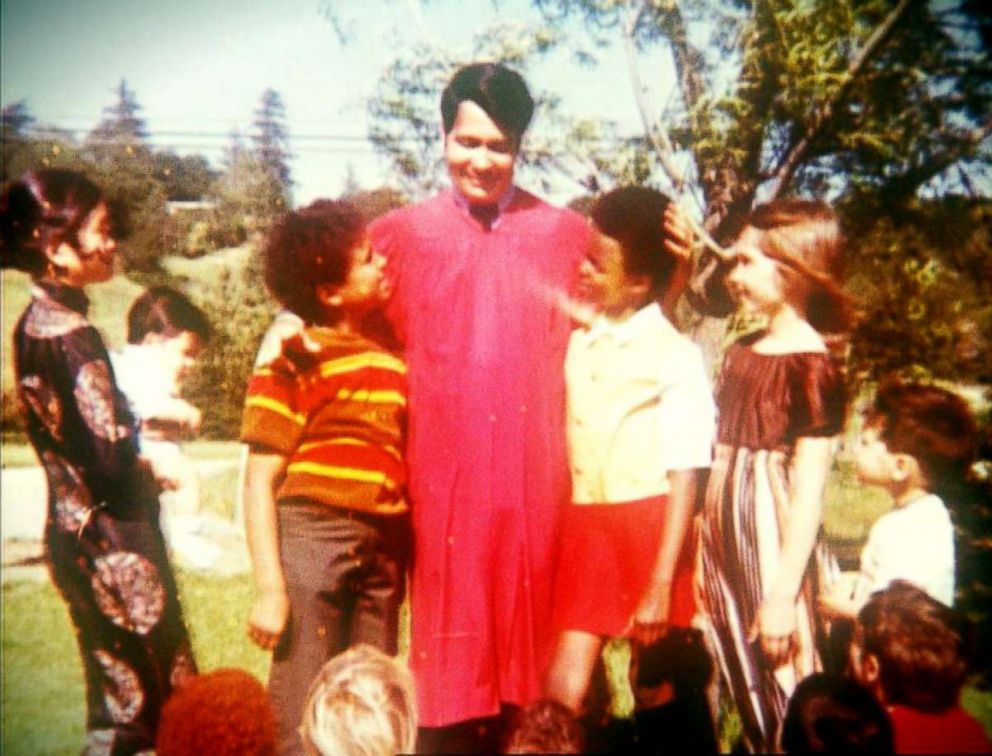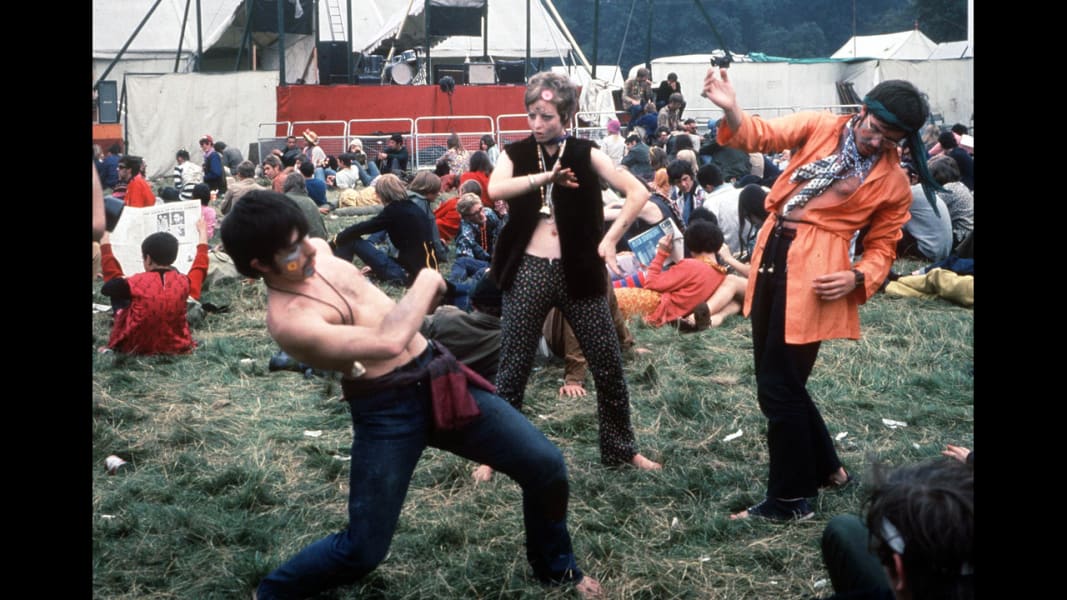How Can We Prevent Cult Tragedies in Times of Uncertainty?
On November 19, 1978, Guyanese officials arrived at the scene of the largest mass suicide in the country’s history. Over 900 people, including children, had poisoned themselves on the command of their “prophet”, Jim Jones. This tragic event was the culmination of a decade-long manipulation by Jim Jones. He managed to convince thousands to join his “People’s Temple” and move to Guyana to live communally. The government was aware of the People’s Temple and Jonestown. In fact, investigators had been sent down one day prior to the massacre, and they were killed, too. It was too late for the People’s Temple. Jim Jones had too strong a hold on his members.
 |
| The entrance to the Peoples Temple compound in Guyana (C-Span) |
So how do we prevent tragedies like Jonestown? It seems that cults and cult-like groups have been a relatively constant part of American history. It’s unlikely that these dangerous groups will simply disappear. Especially as we are in the midst of a global pandemic, we are at risk of mass violence. What we can do is educate ourselves enough to recognize the circumstances that could lead to cults being formed. While there's some discourse about what can create cults and cult-like groups, it comes down to three main factors: the leader, the followers, and the culture.
The Leader
Psychologists have theorized that the strongest psychological trait in a cult leader is extreme narcissism. A cult leader believes that they deserve blind obedience and admiration. This narcissism allows cult leaders, such as Jim Jones, to manipulate people into joining their cause. Jim Jones used his position as a minister and respected member of his community to draw others to him. He consistently preached for racial equality in the 1950s when this was not the norm. His beliefs attracted people of color and other minorities who ended up joining the Peoples Temple. In order for a cult to be successful, they need a charismatic, personable leader who can make a strong case for their cause.
 |
| Jones with some children of the Peoples Temple (ABC News) |
Followers
So, if cult leaders exploit their members so much, why would anyone join a cult? Ultimately, it has to do with fear. People who are scared or uncertain look for a leader and a place they feel like they belong. Cults are also incredibly skilled at recruitment and manipulation They seek out people who are unstable or who have gone through some kind of tragedy. They know that people who have experienced economic, personal, or religious hardship are easy targets for manipulation. While it’s a popular belief that people who join cults have mental illnesses or instabilities, there are really no statistics to back that claim.
As I mentioned earlier, many of Jim Jones’ followers were minorities who were sick of the inequality they were experiencing in America. When Jones spoke out against such inequalities, they felt that they were being heard and represented. They wanted to follow a leader who was on their side for once. The People’s Temple members were dealing with personal crises and general unhappiness with their society, so they were more open to joining Jones’ extreme group.
Cultural Conditions
There are certain periods of time when a large group of people can be more susceptible to cults at once. Times of economic hardship, war, cultural change, etc. increase fear, and we already know that people who are afraid are more likely to be involved in cults. This concept was seen in America in the 1960s-70s. At this time, conventional religion was losing followers, and young people were questioning the beliefs of older generations. Opportunists such as Jim Jones took advantage of all the uncertainty and bent religion to their wills, slowly becoming more and more extreme. This time was also a period where there was a lot of fear and distrust in America. After the Vietnam War and the beginnings of the Cold War, the general public generally did not trust the government nor politicians. There was a looming threat of communist invaders and nuclear war. This fear made people more vulnerable and drove them to seek other, non-traditional lifestyles.
 |
| The counterculture movement of the 1960s (CNN) |
When it comes down to it, a cult can neither form nor be successful without all three of these factors. Without a charismatic leader, there would be no one to form a group. Without willing followers, a leader would not be successful. If the socio-economic and cultural conditions are completely stable, people would not necessarily be willing to join a cult.
It’s important to study these factors so that we can prevent more dangerous cults from forming. If people recognize the signs and conditions of a cult, they’ll be more cautious. Especially in the tumultuous times of a global pandemic, there will always be manipulative people looking to exploit fear and uncertainty. It’s times like now that we need to be aware of those people. By studying cults and cult-like groups, we can hopefully prevent more massive tragedies like Jonestown.
I think your argument is very interesting. I agree that all the three factors you listed to forming a successful cult are necessary and cannot work without each other. It's very interesting to think that cults could be forming as we speak, especially during a time like this where many people are bored. Overall I learned a lot from this and will be sure to watch my back so I don't get sucked into a cult myself hah.
ReplyDeleteI really enjoyed this blog post, by the end I kind of wished there was more to read. It's very easy to read and the material is very interesting, especially because it relates to everyone because the entire country is going through a crisis.
ReplyDeleteI really liked your argument and think your topic is really interesting. I liked how you talked about the three different factors and then tied them together at the end of the blog post. I always thought it was really interesting how a cult leaders were able to amass a large amount of followers. Your blog post gave me some insight into the different factors that cause people to join cults and the manipulative techniques used by cult leaders.
ReplyDeleteI think this is a really good blog! I think your connection of cults with today's current climate and the pandemic is really interesting because as you said troublesome times help in the brith of cults. I wonder is with everything happening now with Black Lives Matter and the pandemic, people would try to take the advantage and manipulate people in a way that by the end of the pandemic we could see the rise of a few cults. Still, do you think times like this could brew something as harmful as Jim Jones' cult?
ReplyDeleteI really enjoyed learning about the factors that together cultivate into a cult. As someone often watched the show Killer Cults on Oxygen, learning about what factors are necessary to create one was super interesting since I could think of many examples of those things. In getting more background into cults, I have become curious about how purposeful cult creation is. The leader and their first followers are actively looking for people to recruit, but do they recognize that they are in fact a cult? That is such a big unknown and question for me.
ReplyDeleteHi Julia!
ReplyDeleteI really liked your blog post! Such an interesting topic. I loved how you related it to the events that are happening in today's world. It is so crazy how there are people in this world who prey on easily manipulated individuals. It is so important to be aware of these things and your blog was able to better educate those who are unaware of this huge issue.
Your reader feedback tells you how effective and engaging your blog post is! My only advice is to choose a font and formatting. that's more blog-specific and less academic-specific. Great use of images and links and strong writing! --MB
ReplyDelete